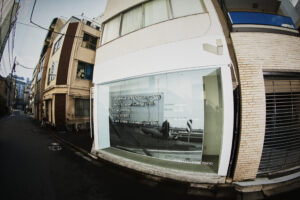From the frozen streets of Milwaukee to the brightest lights of global skateboarding, One Way Ticket is more than a sports documentary — it’s a candid, sometimes painful, always inspiring meditation on dedication, identity, and reinvention. Directed by Nick Amrhein, this documentary charts the rise of Greg Lutzka, a name synonymous with style, precision, and a relentless work ethic that has left an indelible mark on skateboarding culture.
The Early Grind: Midwest Beginnings
Milwaukee, Wisconsin, isn’t the first place that comes to mind when you think of skateboarding meccas. But for Greg Lutzka, these icy sidewalks and rough curbs were the earliest stages of his creative journey. As One Way Ticket lays out with gripping footage and old family interviews, Lutzka’s entry into skateboarding was as raw as they come — a kid with a Walmart board, no indoor skateparks, and an unquenchable desire to skate despite brutal winters.
In a city where hockey and basketball reigned supreme, Lutzka found himself an outsider from the jump. The film poignantly documents this early alienation, capturing the rebellious, almost romantic solitude that pushed him to acutely adept his craft in abandoned lots and frozen driveways. Friends and family provide a touching look at the boy behind the board — shy but fiercely determined, socially reserved but expressive through his skating.
From Local Hero to Contest Destroyer
The documentary transitions seamlessly into Lutzka’s move to California, a pivotal shift echoing the age-old skateboarding migration toward sun-soaked plazas and industry opportunity. Here, One Way Ticket shines brightest, using a mixture of archival contest footage and intimate backstage clips to show how Lutzka turned from an ambitious Midwest hopeful into a dominant force on the global stage.
Viewers watch his meteoric rise through Tampa Pro, the Dew Tour, and the Maloof Money Cup. His consistency, often overshadowed by flashier personalities, becomes the quiet center of his success story. While many pros chased fame, Lutzka chased utmost ideology behind grit and completion. His technical prowess on rails, paired with fluid style and reliable execution, made him a judge’s favorite and a fan icon.
Yet, beyond the trophies and medal podiums, the film explores the costs: grueling schedules, constant travel, and the psychological toll of staying relevant in a scene that celebrates the next big thing every few months.
The Toll of Triumph: Injuries and Sacrifice
Few skateboarding documentaries dare to dwell on the dark side of professional skating. One Way Ticket does not shy away. It documents repeated injuries — sprained ankles, torn ligaments, broken wrists — that became a constant companion to Lutzka’s competitive career.
In one particularly emotional segment, Lutzka revisits the hospital rooms and recovery facilities that became all too familiar. We see his struggle not only with physical pain but also with the mental strain of being sidelined. This vulnerability contrasts starkly with his contest highlight reels and is one of the film’s greatest strengths.
He speaks candidly about the fear of obsolescence — a fear shared by many athletes in an industry obsessed with youth and newness. Here, the documentary moves from being a mere biography to a broader reflection on the cost of living life at full throttle.
Industry Politics and Staying Relevant
A critical part of One Way Ticket is its exploration of skateboarding’s commercial landscape. Far from the romanticized view of skating as pure rebellion, the film peels back layers of sponsorship politics, branding pressures, and the awkward dance between authenticity and marketability.
Lutzka, who has ridden for major companies like Almost, Globe, and Darkstar, speaks honestly about sponsorship negotiations and shifting brand allegiances. As the documentary reveals, staying on top requires more than just landing tricks — it demands strategic self-presentation and a keen understanding of the skate industry’s fickle currents.
Nick Amrhein uses behind-the-scenes footage from industry events and private meetings to paint a holistic picture of a pro skater’s life. These scenes underline Lutzka’s evolution from a purely contest-driven athlete to a brand-conscious entrepreneur, balancing the soul of skating with the reality of paying bills and sustaining a career.
A Community’s Voice: Interviews with Legends
Sprinkled throughout One Way Ticket are interviews with some of skateboarding’s most respected voices: Tony Hawk, Paul Rodriguez, Ryan Sheckler, and others. Their perspectives on Lutzka’s career are heartfelt and unfiltered. Tony Hawk calls him “a quiet tactician,” praising his ability to consistently perform under pressure. Paul Rodriguez emphasizes Lutzka’s technical precision, and Ryan Sheckler speaks to his resilience and mental toughness.
These testimonials provide context and dimension, showing how Lutzka’s contributions resonate beyond mere contest wins. They depict him as a craftsman, someone who helped push technical street skating into new territory while maintaining his authentic style.
The Human Side: Beyond the Board
While skateboarding remains the documentary’s backbone, One Way Ticket succeeds in capturing Lutzka as a multidimensional human being. Viewers get glimpses of his life away from skating — his love for motorcycles, his close-knit family relationships, his downtime fishing or painting.
There’s a moving segment where Lutzka reflects on his early doubts and the moments he contemplated quitting. His openness about vulnerability challenges the archetype of the fearless skater and gives the film a depth that resonates even with non-skating audiences.
By showing Lutzka’s evolution as a person — not just an athlete — the documentary broadens its appeal. It becomes a universal story about passion, sacrifice, and self-discovery.
An Artist and a Brand-Builder
One of the most compelling narrative arcs is Lutzka’s transition from pure competitor to cultured figure. The film details his work in designing skate shoes, creating board graphics, and blending with lifestyle brands. These ventures highlight a modern truth: today’s professional skaters are not just athletes but entrepreneurs and artists.
Lutzka’s approach to brand-building is refreshingly authentic. Rather than chasing viral moments or hollow collaborations, he focuses on partnerships that reflect his personal style and values. This integrity has allowed him to maintain a strong connection with fans and peers even as the skateboarding industry has undergone seismic changes.
Impression
As One Way Ticket nears its conclusion, it addresses the question of legacy. How will Greg Lutzka be remembered? Is it for his contest wins? His technical skills? His influence on skate culture?
Through interviews and reflective monologues, it becomes clear that Lutzka’s true legacy lies in his dedication and authenticity. He may not have always been the loudest or the flashiest, but he consistently let his skating do the talking. For a new generation of skaters, he embodies the possibility of balancing artistic integrity with professional success.
The Cinematic Craft
Nick Amrhein’s direction deserves special mention. Instead of falling into the trap of skate-doc clichés — endless trick montages and bro-heavy voiceovers — he crafts a thoughtful, intimate narrative. The pacing allows emotional beats to land, and the cinematography captures both the grandeur of mega-contests and the quiet poetry of solitary street sessions.
Archival footage is interspersed with high-definition contemporary scenes, creating a layered visual texture that mirrors Lutzka’s own multifaceted journey. The score, alternating between moody instrumentals and energetic punk tracks, underscores the tension between calm introspection and high-adrenaline contest life.
Flow
Ultimately, One Way Ticket isn’t just about Greg Lutzka’s rise; it’s about what it means to devote your life to an art form that doesn’t guarantee comfort or stability. It’s about falling and getting up again, about finding new ways to stay inspired when the world around you changes faster than you can adapt.
No comments yet.







